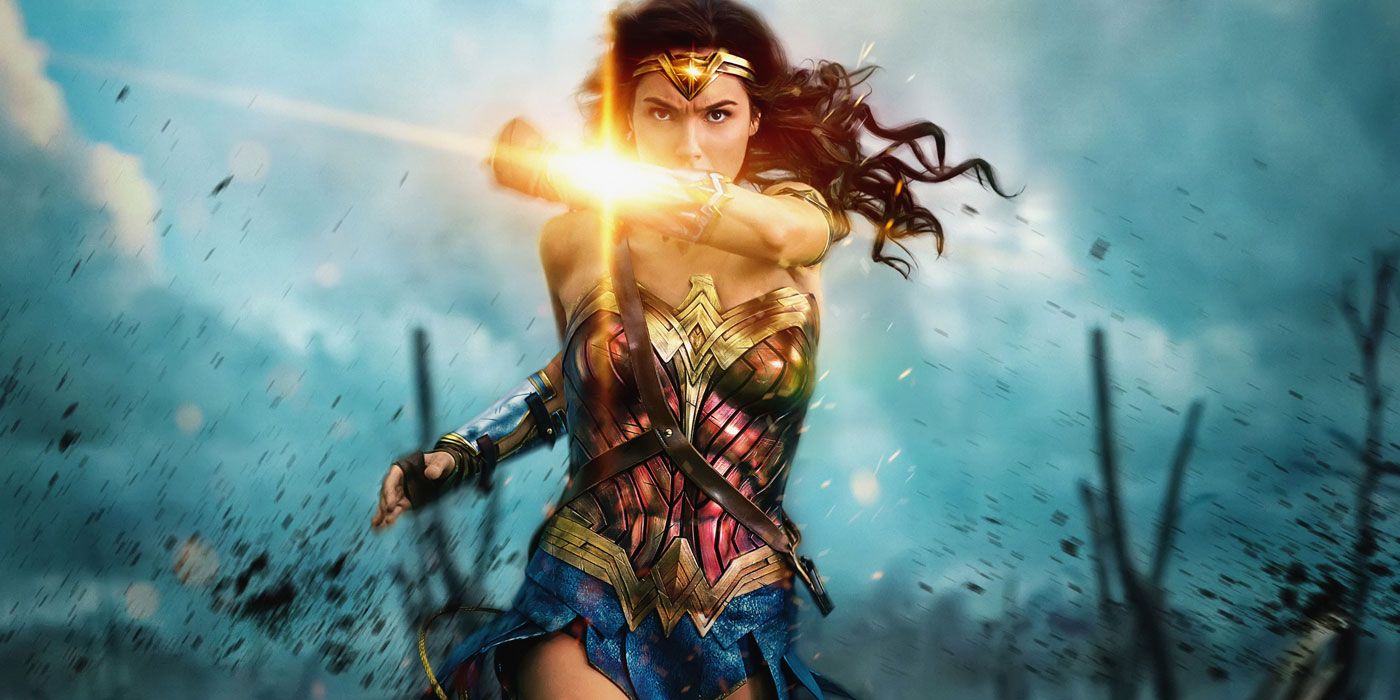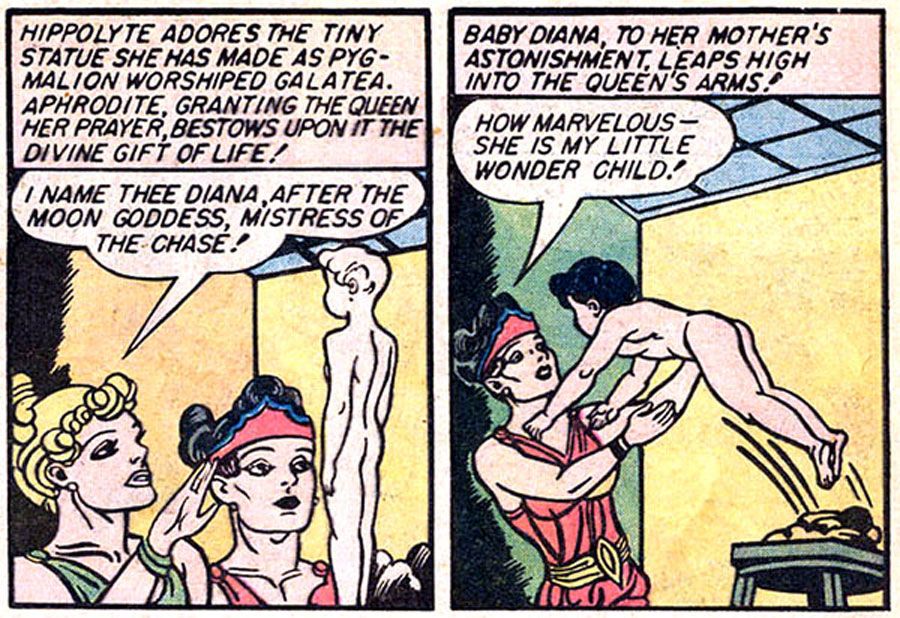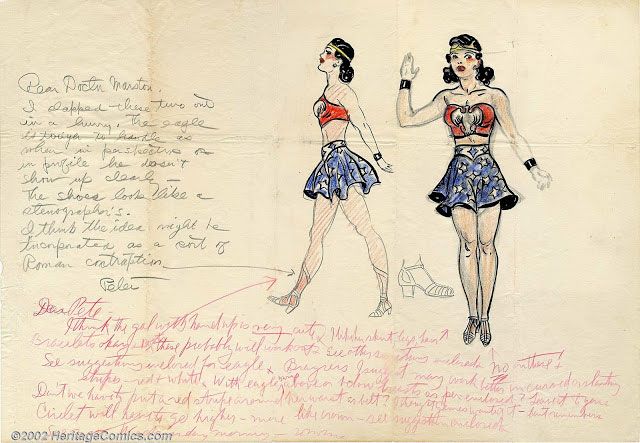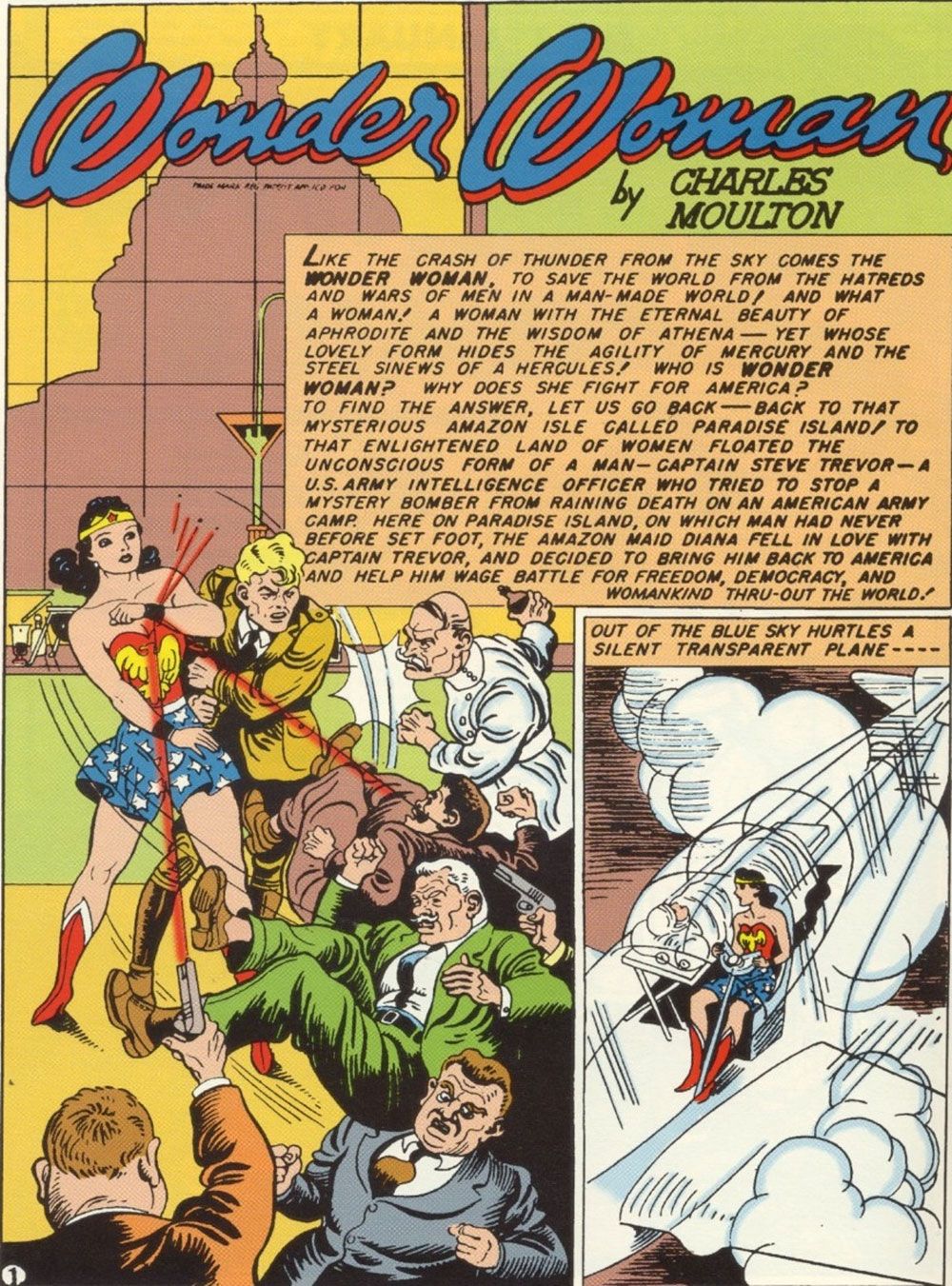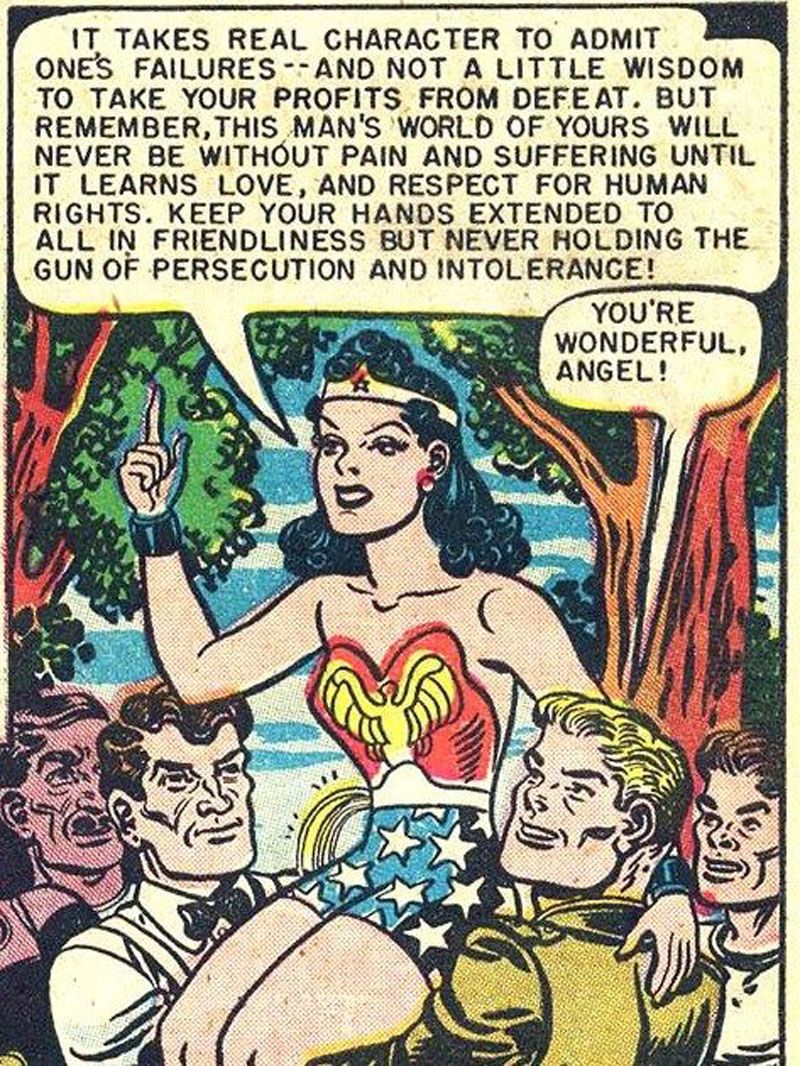This past weekend marked the opening of DC and WB’s long-awaited “Wonder Woman” movie. Raking in $38 million on its opening night alone, reviewers and audiences alike have raved about the film, which brings the feminist icon to the big screen after decades of false starts. But this movie is just the newest chapter in Wonder Woman’s 76-year crusade to save humanity -- both in the fictional DC Universe and in our real, every day world.
RELATED: Wonder Woman’s Most Important Scene Nearly Didn’t Happen
Created by William Moulton Marston under the pseudonym Charles Moulton, Wonder Woman had one ambitious purpose: this fictional character was going to save the world. A psychologist, Marston believed the real world’s ills could be laid at the feet of sexism and inequality. “The only hope for civilization…is greater freedom, development and equality of women,” Marston would argue in his letters. Furthermore, he felt that traditionally feminine principles, love key among them, had been devalued by our culture. “Not even girls want to be girls,” argued Marston, “So long as our feminine archetype lacks force, strength, and power.” Thus he decided to create an inspirational new woman, a Wonder Woman, that would correct all our faults.
From the start, Wonder Woman was set up as America’s feminist savior, a warrior with the paradoxical mission to fight against war. Literally: Ares, the god of War, was her arch-nemesis. Besides glorying in the carnage of World War II, Ares was bent on the destruction of all Amazons as they were created by War’s opposites, Love (Aphrodite) and Wisdom (Athena). Her earliest supporting characters were her female disciples: Etta Candy and the Holliday Girls, students from an all-female college whom Wonder Woman taught to recognize their inner strength and save themselves. Even the decision to make her an Amazon was part of Marston’s unsubtle messianic message. In his first few Golden Age issues we learn that the Amazons left ancient Greece when the sexist Hercules tried to enslave them. The Amazons freed themselves and left our world behind, creating a utopia on Paradise Island. Now an Amazon is back -- Diana -- ready to give us a second chance, using love and mercy as weapons against War.
Much has been made about Superman as a quasi-religious savior, but in our pop culture there’s no more deliberate messiah than Wonder Woman. She’s the product of a virgin birth, sculpted from Earth by Queen Hippolyta and given the divine spark of life by the Goddesses without the intervention of man; Eve without the stigma of being from man’s rib, completely separate and completely equal to Adam. She leaves behind a place literally called Paradise to save humanity from “the forces of hate and oppression.” Her stated mission is to show us the way to salvation by forsaking war and embracing love and forgiveness. Golden Age Wonder Woman never kills. She teaches her allies to turn the other cheek. She even tries to get her enemies to see the light. Literally: she owned a Purple Ray that could heal all wounds and bring people back from the brink of death, Lazarus-style. When Diana finally captured her early Golden Age villain (and now cinematic evildoer) Dr. Poison, she sent her to the Amazons -- not to be punished but to be rehabilitated and taught to abandon her evil ways. She finds converts (Etta Candy, the Holiday Girls, etc.) to help preach the ideas of equality. Even the retcons made later in her history only serve to underline this idea: with Zeus as her father she’s now literally the child of god, here to redeem us all.
In a nutshell, Wonder Woman was designed to save the world -- and not just the fictional one, but our real life one too. Marston wanted the very act of picking up Wonder Woman to be a revelation: you weren’t just reading a comic, you were acknowledging that women are as strong, brave and heroic as men. That justice should be attainable for all, no matter your gender, nationality, race or religion. Wonder Woman would teach children that peace and equality were good things and show them how to carry those ideals forth into their daily lives, reshaping our world in the process.
Heroes, especially superheroes, have always filled a niche in our culture reserved for mythology. They are our folk heroes and messiahs. They are our demi-gods, deploying super-powered miracles in the fight for justice, truth, freedom, and everything we as a culture consider good. The superhero media we consume isn’t just entertainment; it’s a reflection on who we are as a people and what we think constitutes a hero.
At the heart of the new Wonder Woman movie is the simple fact that people are complicated and that good and evil exist in equal measure inside us all. But that is the promise of Wonder Woman: she sees our world as it is, made up of prejudice, sexism, war and hatred, and decided it’s still worth fighting for. “It is our sacred duty to defend the world,” Gadot’s Diana says. “And it is what I am going to do.” Now it’s up to us to take her ideals forward, to demonstrate that we can make the world a better place if we just try. It’s a message she’s been spreading for over 75 years; we just needed someone to show us the way.
Josie Campbell is a TV writer; her credits include WB’s Justice League Action and Disney XD’s Right Now Kapow. Marston quotes taken from his personal letters, interviews and Jill Lepore’s “The Secret History Of Wonder Woman.”

